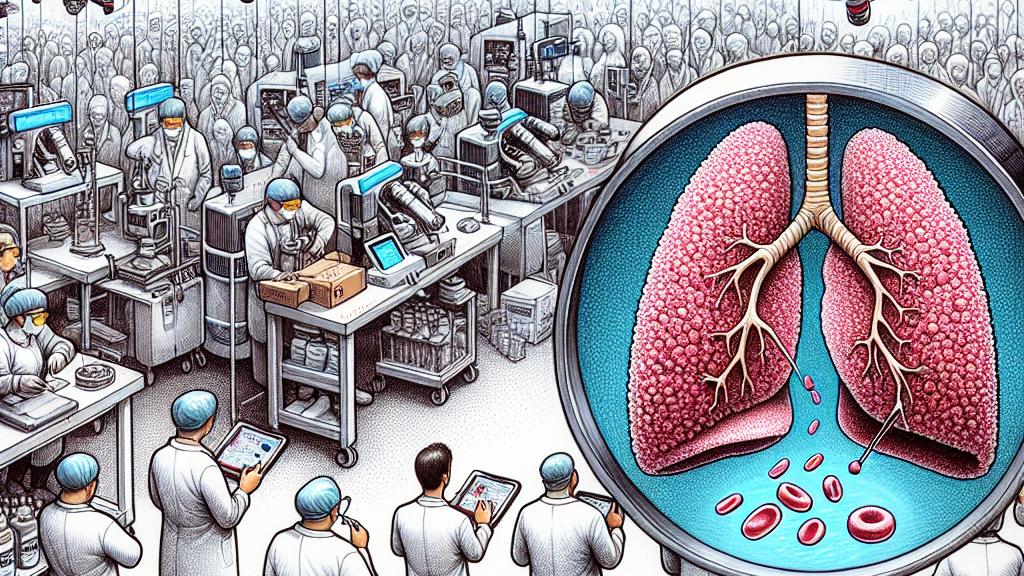Microcellular Drones Deliver Targeted Lung Cancer Treatments
Overview
- NUS researchers have unveiled innovative microcellular drones for personalized lung cancer therapy.
- These nanoscale drones leverage extracellular vesicles to transport anti-cancer drugs precisely to tumors.
- This groundbreaking technology promises to enhance precision medicine and combat drug resistance effectively.

Innovative Strategies in Lung Cancer Treatment
Picture this: in Singapore, a team of passionate scientists at the National University of Singapore has embarked on a remarkable journey in the fight against non-small cell lung cancer (NSCLC). They've crafted micro-sized drones from extracellular vesicles (EVs)—think microscopic carriers derived from red blood cells. The primary objective? To deliver highly personalized anti-cancer medications straight to the site of lung tumors. Given that traditional cancer treatments often falter due to the rapid emergence of drug-resistant cancer cells, targeting the specific mutations found in the epidermal growth factor receptor (EGFR)—a prevalent issue among Asian patients—becomes crucial. This pioneering approach not only ignites hope but also highlights an exciting frontier in personalized cancer therapies.
Precision Medicine: Tailoring Treatment to Each Patient
What sets this method apart from conventional therapies is the essence of precision medicine. With antisense oligonucleotides (ASOs) cleverly encapsulated within these EVs, the researchers have unlocked a new realm of treatment customization. Imagine oncologists tailoring cancer therapies uniquely suited to each patient's genetic profile, allowing for a more effective and targeted approach. This is not merely a theoretical concept but a tangible reality emerging from cutting-edge research. Since EVs possess the remarkable ability to withstand harsh environments within the bloodstream, they ensure that ASOs maintain their potency until they reach their intended destination—the tumor site. Consequently, this targeted drug delivery mechanism dramatically improves the concentration of therapeutic agents where they are most needed, promising significant enhancements in patient outcomes.
A Bright Future: Transforming Drug Delivery Systems
The potential applications for these microcellular drones are immense, reaching beyond lung cancer treatment into broader realms of medicine. Imagine a future where every cancer treatment regimen is as unique as the patient themselves, tailored to accommodate the individual’s specific genetic makeup and cancer profile. This technology hints at a revolutionary shift in how we perceive and administer cancer therapies. As researchers forge ahead, refining these innovative drones, we find ourselves on the cusp of a significant transformation in healthcare—an era characterized by personalized treatment strategies that not only target cancer effectively but also adapt to its ever-changing landscape. Together, we could redefine the battle against cancer, embarking on a journey filled with hope, creativity, and groundbreaking scientific advancement.

Loading...